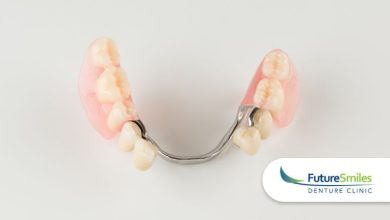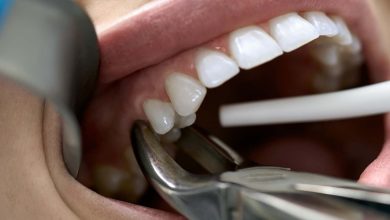Can I Drink Pop After Tooth Extraction? Unveiling the Hidden Dangers

No, you should not drink pop after tooth extraction as it can disrupt the blood clot and lead to continued bleeding from the extraction site. It is best to avoid carbonated beverages for at least six weeks until the wound heals completely.
When it comes to recovering from a tooth extraction, it’s important to follow post-procedure instructions to ensure proper healing and minimize complications. One question that often arises is whether it is safe to drink pop after tooth extraction. Pop, or carbonated beverages, should be avoided after tooth extraction as they can disrupt the blood clot that forms in the extraction site.
This can lead to continued bleeding and potentially delay the healing process. In fact, it is recommended to avoid carbonated beverages for at least six weeks until the wound heals completely. By adhering to these guidelines, you can promote a smooth recovery and prevent any unnecessary complications.
The Impact Of Pop On Tooth Extraction Healing
The impact of pop on tooth extraction healing is a major concern for patients. One of the reasons is that carbonated beverages can disrupt the blood clot formation, which is crucial for the healing process. Blood clots play a vital role in the healing process by protecting the extraction site and promoting tissue regeneration. Consuming pop immediately after tooth extraction can lead to continued bleeding from the extraction socket, as it disrupts the formation of blood clots. This disruption can increase the risk of complications and delay the healing process. It is recommended to avoid drinking carbonated beverages such as pop for at least a week after tooth extraction. This includes not only soda but also other carbonated drinks. It is best to focus on consuming water and other non-carbonated beverages to facilitate healing and prevent any potential complications.
Recommended Timeframe For Avoiding Pop After Tooth Extraction
The recommended timeframe for avoiding pop after tooth extraction depends on the standard healing timeline for tooth extraction. It is generally advised to wait at least 24-48 hours before consuming any carbonated beverages, including pop. This is because the bubbles in carbonated drinks can disrupt the blood clot formation in the extraction socket, leading to continued bleeding and potential complications. It is best to wait for the full six weeks for complete healing to ensure the best results. In the meantime, it is important to avoid crunchy foods like nuts, chips, and popcorn, as they can easily get stuck in the extraction sites. Focus on drinking lots of water to facilitate healing and stay hydrated. Additionally, beverages like Gatorade, Powerade, and Pedialyte can be good options to help with hydration and quick recovery.
Alternatives To Pop During The Healing Phase
After a tooth extraction, it is important to avoid drinking carbonated beverages like pop during the healing phase. Consuming pop can disrupt the formation of blood clots in the extraction site, leading to continued bleeding and complications. It is recommended to wait for at least six weeks for the wound to heal completely before drinking soda. Instead, focus on hydrating yourself with other beverages that are safe and beneficial for healing.
Some alternatives to pop during the healing phase include:
- Water: Drink plenty of water to facilitate healing and stay hydrated.
- Gatorade, Powerade, and Pedialyte: These beverages can provide electrolytes and help with hydration.
- Sweet tea: A non-carbonated option that can be consumed after a tooth extraction.
- Fruit juices: Opt for natural fruit juices without any added sugars.
While focusing on hydration, it is also important to maintain a healthy diet and practice good oral hygiene. Avoid crunchy foods that can get stuck in the extraction sites, and follow any post-extraction instructions given by your dentist. By following these suggestions, you can promote faster recovery without the risks associated with pop consumption.

Credit: www.timberdentalcolorado.com
Frequently Asked Questions For Can I Drink Pop After Tooth Extraction
What Happens If I Drink Soda After Tooth Extraction?
It is best to avoid drinking soda after tooth extraction for at least six weeks. Drinking soda can disrupt the blood clot formation and cause continued bleeding from the extraction socket. It is important to follow post-tooth extraction instructions and focus on hydrating with water or other recommended beverages.
Can Pop Cause Dry Socket?
Drinking pop after tooth extraction may disrupt the blood clot and cause continued bleeding from the extraction site. It is best to avoid carbonated drinks like soda to prevent complications such as dry socket. Focus on drinking water and other non-carbonated beverages to facilitate healing.
What Drinks Can I Drink After Tooth Extraction?
After tooth extraction, focus on drinking water to stay hydrated and aid healing. You can also try Gatorade, Powerade, or Pedialyte for hydration and quicker healing. Avoid carbonated drinks, including soda, as they can disrupt blood clot formation and cause complications.
Can I Drink Pop A Week After Tooth Extraction?
It is best to wait at least six weeks before drinking soda after a tooth extraction. Carbonated beverages can disrupt the blood clot formation and cause continued bleeding from the extraction site. It is important to follow post-extraction instructions to avoid complications.
Conclusion
It is best to avoid drinking carbonated beverages, including soda, after a tooth extraction. Carbonated drinks can disrupt the blood clot formation and lead to continued bleeding or even dry socket. It is recommended to wait for at least six weeks for complete healing to occur before consuming soda.
Instead, focus on hydrating yourself with plenty of water and other non-carbonated drinks like Gatorade or Pedialyte to aid in the healing process. Remember to follow the post-extraction instructions provided by your dentist for a smooth recovery.





